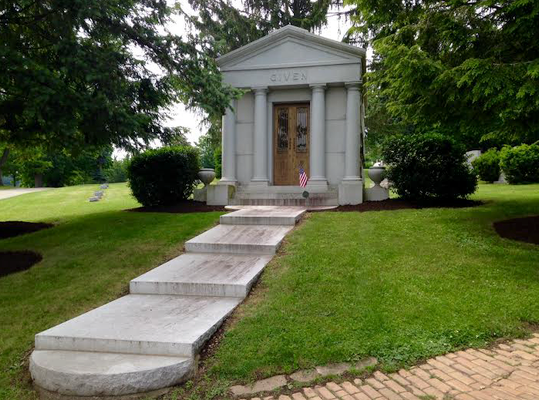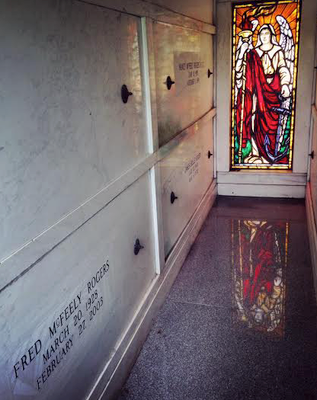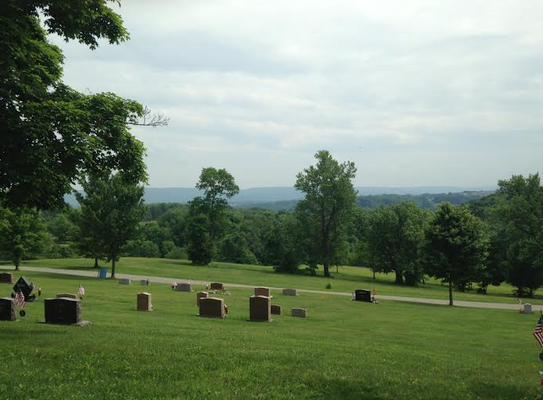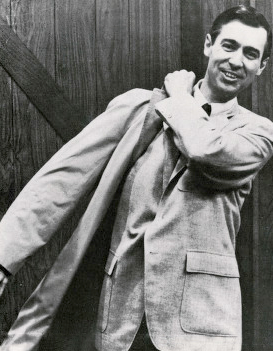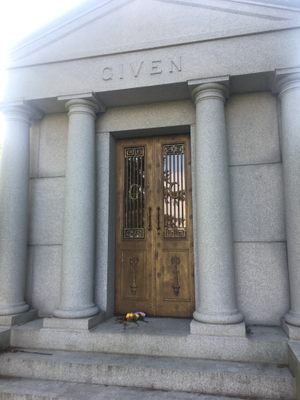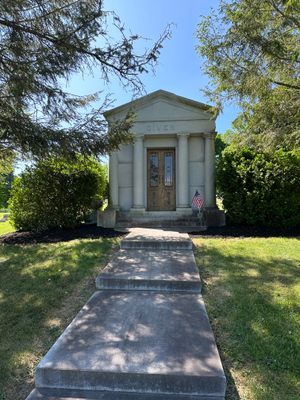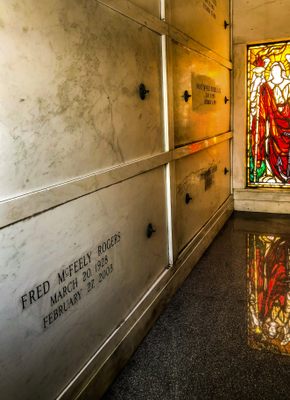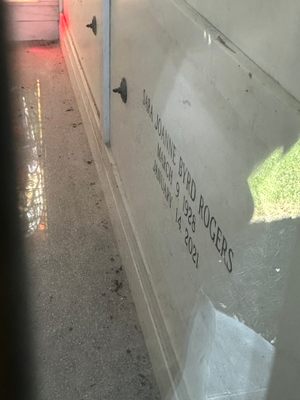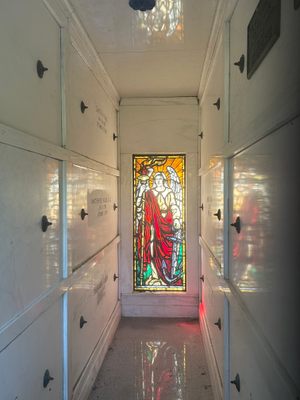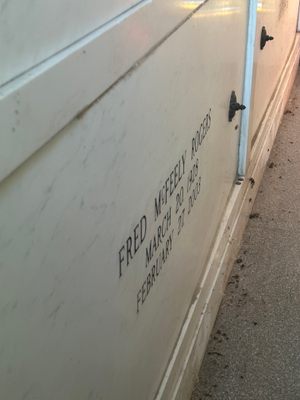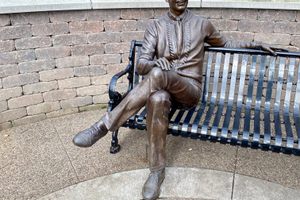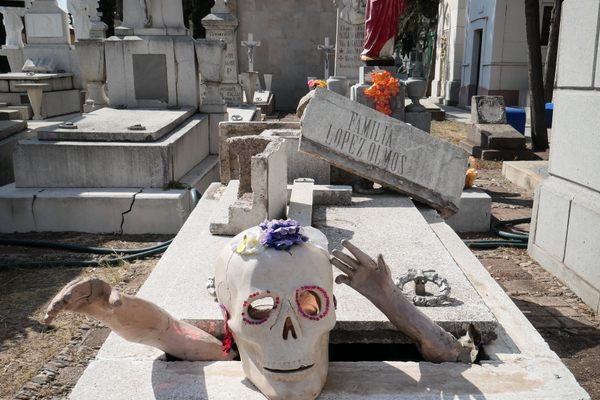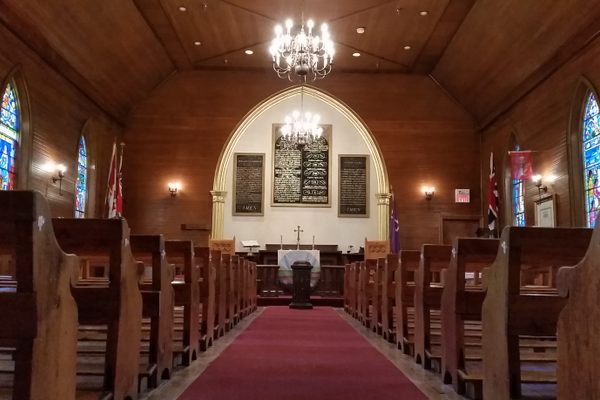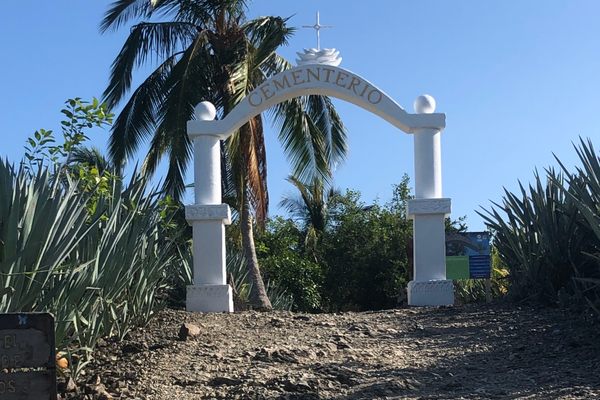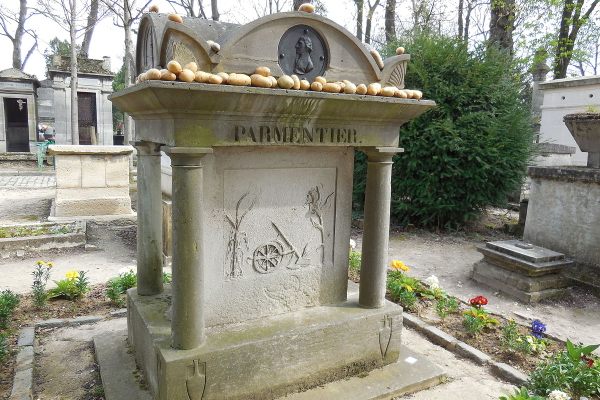About
Born in 1928 in Latrobe, Pennsylvania — a town which also produced golfer Arnold Palmer and Rolling Rock beer — Fred McFeely Rogers went on to become an American cultural icon. Though he lived most of his adult life in Pittsburgh, upon his passing he was laid to rest back in Latrobe, among the family and community that had fostered him as he, in turn, fostered so many.
Rogers grew up in a Presbyterian family steeped in a strong public service ethic. As a child, the young Fred suffered from asthma, which often left him homebound. Though he suffered from intense loneliness and self-doubt, it was his isolation and shyness that led him to develop a strong sense of empathy and feeling toward others, strengths he later used to help millions of children and adults with their own problems.
Studying music composition in college and intending to ultimately go into the ministry, Rogers instead went into broadcasting — a decision partly spurred on by his dislike of television. "I went into television because I hated it so," he said in an interview years later, "and I thought there was some way of using this fabulous instrument to be of nurture to those who would watch and listen."
In 1954, he got a job as a puppeteer on a children's show produced by Pittsburgh's WQED; it was during his puppeteering days that he started wearing sneakers since they made less noise behind the scenes. Though he became an ordained Presbyterian minister in 1963, he remained in television, seeing it as a unique opportunity for ministering to the needs of children. The first episode of Mr. Rogers' Neighborhood was filmed in Steel City and aired on February 19, 1968. It ran for 32 years, and included innumerable outstanding segments, including this thoroughly, absurdly wonderful breakdancing session.
In December 2002, just after his retirement, Fred Rogers was diagnosed with stomach cancer. He died on February 27, 2003, at the age of 75, and was buried in Latrobe's Unity Cemetery.
One of the first Christian cemeteries in western Pennsylvania, Unity Cemetery was attached to Unity Chapel. Founded in 1774 in a wilderness area, this was the first Presbyterian chapel west of the Alleghenies. Unity Chapel closed when the congregation disbanded in 1920, but Fred's father James started a campaign in the 1950s to restore the humble brick chapel, which had been built in 1874 on the site where a frontier log cabin church once stood. That chapel reopened in 1954.
Fred "Mr." Rogers is buried in a family mausoleum in Unity Cemetery along with his father James Hillis Rogers (a prosperous businessman and president of the McFeely Brick Company) and his mother Nancy McFeely (who, as a 14-year-old, delivered medical supplies during a WWI influenza epidemic and went on to drive for the Red Cross, volunteer in the Latrobe area hospital, and knit all the sweaters Fred wore on television). There are other family members in the tomb, as well — including the ashes of Paul Lessinoff, a Bulgarian diplomat married to Rogers' aunt. Lessinoff died in Paris in 1921, but became a rather unlikely neighbor to this man famous for singing "Won't you be my neighbor?"
The mausoleum bears the family name "Given" and can be found atop a hill near the back of the cemetery.
Related Tags
Know Before You Go
Unity Cemetery sits on Unity Cemetery Road about a mile west of Latrobe. Mr. Rogers' grave is near the back of the cemetery. You can enjoy a grand, panoramic view of the Laurel Highlands anywhere in the cemetery. Latrobe has a few other historic sites worth checking out. Nearby St. Vincent Archabbey, founded by Bavarian monks in 1846, is the oldest Benedictine monastery in the U.S. Neighboring St. Vincent College, run by the Benedictines, is home to the Fred Rogers Center for Early Learning and Children's Media. The center houses the Fred Rogers Archive (16,000 items related to his life and career) as well as an impressive multimedia exhibit. Here you can view the original Neighborhood Trolley, Daniel Striped Tiger, X the Owl, and other objects from his long and storied television career.
Community Contributors
Added By
Published
June 9, 2016
